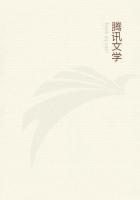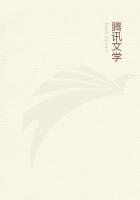Nevertheless, for our purpose of refuting those who are unable to comprehend what true sanctity is, and who therefore insult over our outraged Christian women, it is enough that in the instance of this noble Roman matron it was said in her praise, "There were two, but the adultery was the crime of only one." For Lucretia was confidently believed to be superior to the contamination of any consenting thought to the adultery.And accordingly, since she killed herself for being subjected to an outrage in which she had no guilty part, it is obvious that this act of hers was prompted not by the love of purity, but by the overwhelming burden of her shame.She was ashamed that so foul a crime had been perpetrated upon her, though without her abetting; and this matron, with the Roman love of glory in her veins, was seized with a proud dread that, if she continued to live, it would be supposed she willingly did not resent the wrong that had been done her.
She could not exhibit to men her conscience but she judged that her self-inflicted punishment would testify her state of mind; and she burned with shame at the thought that her patient endurance of the foul affront that another had done her, should be construed into complicity with him.
Not such was the decision of the Christian women who suffered as she did, and yet survive.They declined to avenge upon themselves the guilt of others, and so add crimes of their own to those crimes in which they had no share.For this they would have done had their shame driven them to homicide, as the lust of their enemies had driven them to adultery.Within their own souls, in the witness of their own conscience, they enjoy the glory of chastity.In the sight of God, too, they are esteemed pure, and this contents them; they ask no more: it suffices them to have opportunity of doing good, and they decline to evade the distress of human suspicion, lest they thereby deviate from the divine law.
CHAP.20.--THAT CHRISTIANS HAVE NO AUTHORITY FOR COMMITTING SUICIDEIN ANY
CIRCUMSTANCES WHATEVER.
It is not without significance, that in no passage of the holy canonical books there can be found either divine precept or permission to take away our own life, whether for the sake of entering on the enjoyment of immortality, or of shunning, or ridding ourselves of anything whatever.Nay, the law, rightly interpreted, even prohibits suicide, where it says, "Thou shalt not kill." This is proved especially by the omission of the words "thy neighbor," which are inserted when false witness is forbidden:
"Thou shalt not bear false witness against thy neighbor." Nor yet should any one on this account suppose he has not broken this commandment if he has borne false witness only against himself.For the love of our neighbor is regulated by the love of ourselves, as it is written, "Thou shalt love thy neighbor as thyself."If, then, he who makes false statements about himself is not less guilty of bearing false witness than if he had made them to the injury of his neighbor; although in the commandment prohibiting false witness only his neighbor is mentioned, and persons taking no pains to understand it might suppose that a man was allowed to be a false witness to his own hurt; how much greater reason have we to understand that a man may not kill himself, since in the commandment," Thou shalt not kill," there is no limitation added nor any exception made in favor of any one, and least of all in favor of him on whom the command is laid!
And so some attempt to extend this command even to beasts and cattle, as if it forbade us to take life from any creature.
But if so, why not extend it also to the plants, and all that is rooted in and nourished by the earth? For though this class of creatures have no sensation, yet they also are said to live, and consequently they can die; and therefore, if violence be done them, can be killed.So, too, the apostle, when speaking of the seeds of such things as these, says, "That which thou sowest is not quickened except it die;" and in the Psalm it is said, "He killed their vines with hail." Must we therefore reckon it a breaking of this commandment, "Thou shalt not kill," to pull a flower?
Are we thus insanely to countenance the foolish error of the Manichaeans?
Putting aside, then, these ravings, if, when we say, Thou shalt not kill, we do not understand this of the plants, since they have no sensation, nor of the irrational animals that fly, swim, walk, or creep, since they are dissociated from us by their want of reason, and are therefore by the just appointment of the Creator subjected to us to kill or keep alive for our own uses;if so, then it remains that we understand that commandment simply of man.The commandment is, "Thou shall not kill man;" therefore neither another nor yourself, for he who kills himself still kills nothing else than man.
CHAP.21.--OF THE CASES IN WHICH WE MAY PUT MEN TO DEATH WITHOUT INCURRINGTHE
GUILT OF MURDER.















